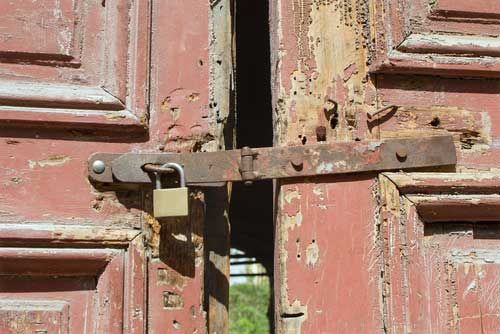Negligent security is a type of premises liability in which a lawsuit can be filed due to a criminal or violent act that occurs on a property. In this case, the victim files a claim against the property owner or manager because of incidents such as assault, theft, or rape that occurred on the property due to inadequate security.
Landowners or property owners are expected to maintain adequate security on their premises and protect third parties from dangerous conditions such as criminal acts. In a negligent security lawsuit, the property owner or manager must have failed to provide reasonable security measures that could have prevented the crime or reduced the severity.
For example, if the owner fails to provide lighting or security in the parking lot, and a third party suffers damages, the owner can be held liable. Usually, negligent security lawsuits are filed against shopping mall owners, schools, garages, retail stores, and hospitals.
What Do You Need to Prove in a Negligent Security Lawsuit?
In a negligent security lawsuit, there are things the plaintiff needs to prove. First, the plaintiff must be able to prove that they were on the defendant’s property lawfully. The plaintiff must also prove that the property owner failed to provide or maintain reasonable security and that this contributed to the injuries the plaintiff suffered from a third party while on the property.
The plaintiff must be able to prove that the owner failed to give enough warnings and that they suffered specific damages as a result. Though the law does not mandate individuals to protect others from criminal acts committed by third parties, there are some exceptions. For example, business owners, innkeepers, and common carriers are expected to provide reasonable protection from foreseeable criminal activity.
Negligent security cases will involve lots of investigations to prove your claims. You will need an attorney that specializes in personal injury cases to recover your losses. We’ll examine what is considered foreseeable criminal activity below.
Foreseeable Criminal Activity
Foreseeability is an important issue that refers to whether similar incidents in the same location could have made the crime foreseeable. Foreseeability is an essential factor that is used to prove negligent security. For example, in some states, the offense is only foreseeable if similar incidents had occurred on the property, and the owner should have known or must have known about them.
Other states use the imminent harm test. In this case, business owners have a duty to react to immediate harm to their property. For example, they must warn the customer or contact law enforcement.
In some states, the plaintiff can prove that the crime was foreseeable by bringing evidence such as the neighborhood, previous crimes near the premises, and inadequate security measures. In some states, the percentage-at-fault is used. This means the damages may be reduced if the plaintiff shares in the fault.
What Constitutes Reasonable Security?
What constitutes reasonable security will vary depending on the property and the state. For example, depending on the property, the owner is expected to have security guards during business hours or when guests are still on the property. Other reasonable security measures include locks, adequate lighting, security cameras, gates, and the exercise of discretion.
However, in some states, some statutes contain specific security measures that count as adequate security. Once the property owner has taken the required precautions, they are free from liability that may be incurred due to the criminal attacks a third party suffers while on their property.
What are the Damages in a Negligent Security Lawsuit?
The compensation you can get from a negligent security lawsuit varies depending on the state. It may include general compensatory damages and special damages. Generally, the damages are categorized under economic and non-economic damages. The monetary damages include expenses such as medical expenses, property damage, and lost income. Non-economic damages include non-monetary losses, e.g., pain, suffering, or emotional disturbance.
Contact the Calvin Smith Law Firm to Get Help
Negligent security cases usually involve thorough investigations, while the defendant will also try their best to avoid liability. If you have suffered damages as a result of negligent security in Macon, Georgia, then you will need an experienced attorney to help you get the compensation you deserve. We have offices all around Georgia, where you can find legal help that will prepare you for court and give you a better chance at receiving a worthy settlement as you go to court. Contact our personal injury lawyers at the Calvin Smith Law Firm to schedule a free consultation and learn more.









